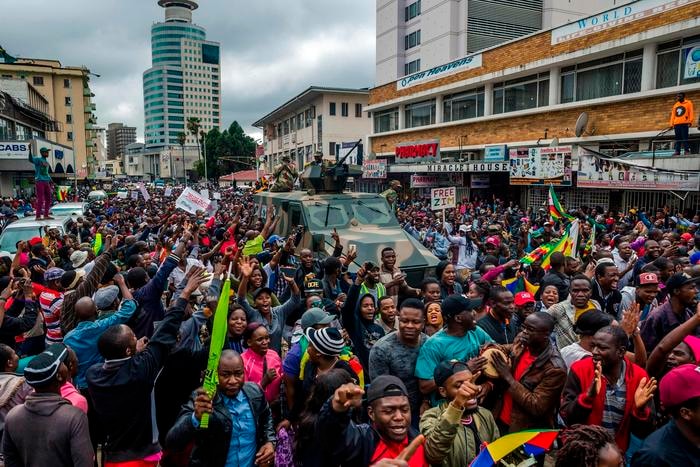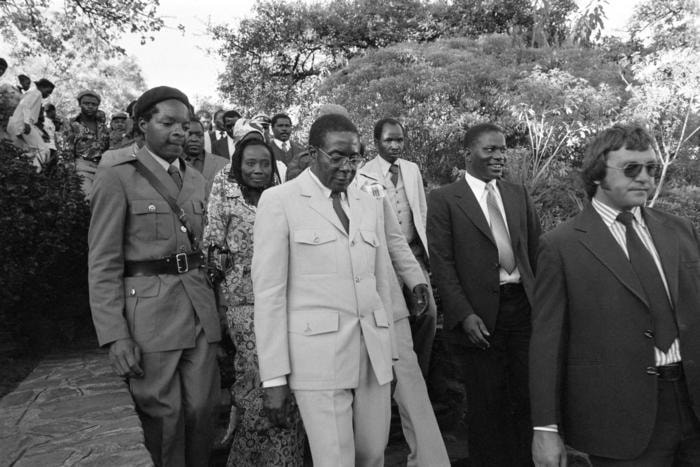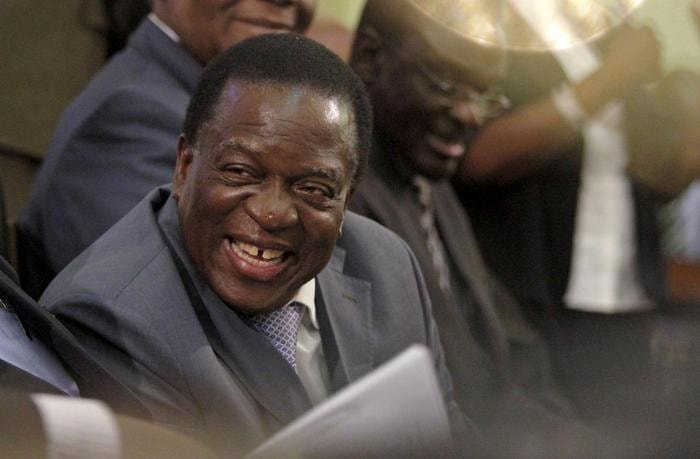Closing the 'Mugabe Era', what future for Zimbabwe?
(Baonghean) - Zimbabwean President Robert Mugabe has resigned, ending nearly four decades in power and defusing a political crisis that has reached its peak over the past week. A new chapter will open for Zimbabwe, but the future remains unpredictable.
The people's will has won.
November 21 became a historic day in Zimbabwe when President Robert Mugabe submitted his resignation - ending 37 years in power. For the people of this African country, they have been waiting for this day for a long time because President Robert Mugabe was accused of turning Zimbabwe from a rich country into a poor and unstable country.
“The city sings” is what can be described in the capital Harare after the news of President Mugabe’s resignation was announced. The “victory-like” atmosphere of Mr. Mugabe’s resignation announcement quickly spread throughout Zimbabwe. People considered this a historic turning point, opening up changes for Zimbabwe.
 |
| Zimbabweans celebrate as Mr Mugabe resigns as President. Photo: KSDK |
Previously, Mr. Mugabe firmly refused to leave despite pressure from the military, political parties and the people in the country. And at the last minute, when the parliamentarians began meeting to oust him, the 93-year-old president announced his resignation. Thus, Mr. Mugabe made a clear decision and was a choice in line with the will and aspirations of the Zimbabwean people after a week of political instability. The ruling party ZANU-PF immediately announced that former Vice President Emmerson Mnangagwa would be sworn in as President within the next 48 hours to replace Mr. Mugabe. Mr. Mnangagwa will lead Mr. Mugabe's old cabinet until the next general election held in September 2018.
Thus, a smooth transition has taken place, in contrast to the "changing of the stars" in African politics, which are often tinged with violence. There is currently no detailed information from generals or government officials about the next plan for President Mugabe and his family after he resigns. However, Mr. Mugabe is said to continue negotiating to achieve certain conditions after he agreed to give up the presidency after 37 years in power.
“Mugabe's legacy”
Mr. Mugabe was once famous for fighting against the white colonial government and was imprisoned for 10 years, but then, when he took power, he became a dictator. In 1980, under the struggle of Robert Mugabe, Zimbabwe gained independence, freeing itself from the colonial rule of the white people. Mr. Mugabe also became the leader of the independent nation of Zimbabwe from then on.
Mr. Mugabe's influence at this time was quite large when he was considered by many people as the Nelson Mandela of Zimbabwe - a national liberation hero. In the 1980s, President Mugabe was recognized by the international community for his efforts in improving education and health care in the country.
However, since the 1990s, Mubage's reputation has been on the decline. From a "liberator", he was accused of being an "oppressor" and left behind a "legacy" of an economically devastated and politically unstable Zimbabwe. During the 2007-2008 period, inflation in Zimbabwe reached unimaginable levels, forcing the country's central bank to print 100 trillion Zimbabwean dollars so that consumers would not have to carry sacks of cash when shopping.
During the hyperinflation period, a 100 billion Zimbabwean dollar bill could only buy 3 eggs. To date, the situation has not improved much as the unemployment rate in Zimbabwe remains at 90% and industrial development is sluggish. The education system, which is the pride of Zimbabwe, is under threat while many other important sectors of the country are also in a "gasping state".
 |
| Robert Mugabe (in white) became leader of independent Zimbabwe in April 1980. Photo: Getty |
Politically, Zimbabwe is currently divided internally, mainly between two generations, one is the veteran team who participated in the revolutionary struggle for liberation for the country, at the same time as Mr. Mugabe and the other is the younger generation. Ideology and approach to current events also cause Zimbabwe's politics to be divided.
What future?
In fact, over the past decade, the situation in Zimbabwe has been continuously tense due to the impact of the economic crisis and political instability. Therefore, although Mr. Mugabe's political fate has been decided, there are still countless uncertainties awaiting Zimbabwe, first of all the transition of power in the "post-Mugabe" era.
Now, the doors of Zimbabwe's presidential palace are wide open to Emmerson Mnangagwa, the Vice President who was dismissed by Mr. Mugabe 13 days ago. A prominent figure since Zimbabwe declared independence in 1980, Mr. Mnangagwa became Vice President in 2014 and is widely known by the nickname "Crocodile".
For decades, he has served as President Mugabe’s right-hand man and has earned a reputation as a shrewd, ruthless manipulator of the levers of power. Mnangagwa is feared more than loved by Zimbabweans, although in recent years the former vice president has repeatedly portrayed himself as a seasoned leader who can bring stability to Zimbabwe. However, Mnangagwa’s promises to return Zimbabwe to democracy and prosperity have left many experts skeptical.
 |
| Mr. Emmerson Mnangagwa will become interim President after Mr. Mugabe resigns. Photo: BBC. |
Mr. Tom McDonald, former US ambassador to Zimbabwe, commented: “Mnangagwa is more pragmatic than Robert Mugabe, but he is also a dictator.” Meanwhile, Tod Moss, an Africa expert at the Center for Global Development, also frankly admitted: “Mr. Mnangagwa is part of Zimbabwe’s sad past, not its future.”
Although he is only leading the interim government, Mnangagwa's apparatus will have to face many challenges, the first of which is to build a unity government, bringing together representatives of all parties, armed forces, labor forces and religious groups. In addition, the interim government must also prepare for the upcoming parliamentary and presidential elections to be fair and equal.
In other words, in the context of economic exhaustion, political contradictions, conflicts and violence will only push the Zimbabwean economy deeper into a recession with no way out. The only solution now is for the parties concerned to exercise restraint, overcome political disagreements, and avoid actions that may further complicate the situation in Zimbabwe.
Thanh Huyen
| RELATED NEWS |
|---|


